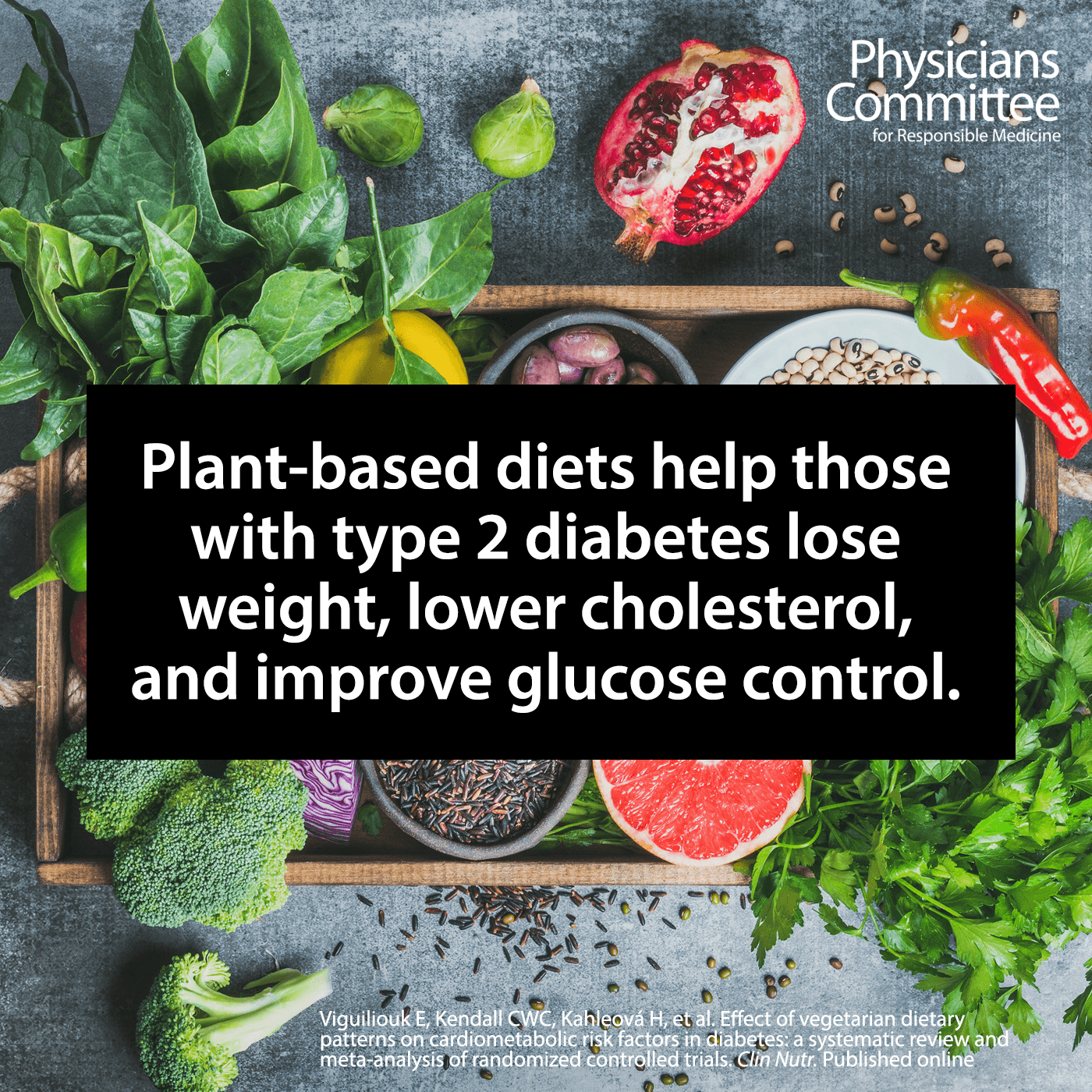Dr. Neal Barnard, MD, FACC
Pioneering research on plant-based nutrition for diabetes reversal and hormonal health
Founder of the Physicians Committee for Responsible Medicine (PCRM)
Explore Research
Pioneering research on plant-based nutrition for diabetes reversal and hormonal health
Founder of the Physicians Committee for Responsible Medicine (PCRM)
Explore Research
Born in Fargo, North Dakota on July 10, 1953, Dr. Neal Barnard is a physician, clinical researcher, and animal rights advocate who has dedicated his career to studying the effects of diet on health.
He received his medical degree from George Washington University School of Medicine and completed his residency at the same institution. After practicing at St. Vincent's Hospital in New York, he returned to Washington to establish what would become his life's work.
In 1985, Dr. Barnard founded the Physicians Committee for Responsible Medicine (PCRM), an organization that has grown to include over 150,000 healthcare professionals advocating for preventive medicine, nutrition research, and higher ethical standards in research.
As a researcher, Dr. Barnard has led numerous clinical trials investigating the effects of diet on diabetes, body weight, chronic pain, and hormonal symptoms. His groundbreaking work has been funded by the National Institutes of Health and has been published in prestigious medical journals including the American Journal of Clinical Nutrition and Diabetes Care.
Dr. Barnard is an Adjunct Associate Professor of Medicine at the George Washington University School of Medicine and the Founder and President of the Barnard Medical Center, a nonprofit primary care medical practice in Washington, D.C., where physicians and nutritionists help patients with diet-related conditions.

Dr. Barnard's research has centered on understanding how dietary choices affect health outcomes across a range of conditions. His key research areas include:
His research methodology emphasizes randomized clinical trials with practical dietary interventions that can be implemented in real-world settings.
Dr. Barnard's NIH-funded study comparing a low-fat vegan diet to a conventional diabetes diet found that the plant-based approach was more effective for weight loss, glycemic control, and cholesterol reduction.
His research in corporate settings demonstrated that workplace dietary interventions can lead to significant weight loss and improvements in health markers for employees.
Dr. Barnard's work has shown connections between dietary fat, fiber, and hormonal conditions including menstrual pain, PCOS, and menopausal symptoms.
His research has explored the neurological basis of food cravings and addictive-like behaviors related to certain foods, particularly dairy and high-fat foods.
Dr. Barnard's pioneering research has demonstrated that a low-fat, plant-based diet can be more effective than conventional approaches for managing type 2 diabetes. His team's studies have shown that this dietary approach can:
A key study published in Diabetes Care found that 43% of participants following a low-fat vegan diet were able to reduce their diabetes medications, compared to 26% in the control group following the conventional American Diabetes Association diet.
Unlike traditional approaches that focus on carbohydrate restriction, Dr. Barnard's research has shown that a diet rich in complex carbohydrates from whole plant foods can improve the underlying cause of type 2 diabetes: insulin resistance.

Dr. Barnard's research has shown that patients typically see improvements in glucose levels within days of adopting this approach. HbA1c levels often decrease by 1.0 to 1.5 percentage points within 3 months, which can be more effective than many medications.
Medical supervision is recommended, as medication adjustments are commonly needed to prevent hypoglycemia as the diet takes effect. The protocol has been successfully implemented in clinical settings, workplace programs, and community interventions.
Dr. Barnard has authored more than 20 books on nutrition, health, and medicine. His publications range from scientific studies in peer-reviewed journals to practical guides for the general public.

Scientifically proven approach to reversing type 2 diabetes through a low-fat vegan diet without restricting calories.
Published: 2007, Updated: 2018

How foods affect hormones and the solutions to conditions like infertility, menopause symptoms, thyroid problems, and more.
Published: 2020

An effective 3-step plan to protect your mind and strengthen your memory through diet and exercise.
Published: 2013

150 delicious plant-based recipes to help prevent and reverse diabetes, co-authored with Dreena Burton.
Published: 2018

How breaking this surprising addiction will help you lose weight, gain energy, and get healthy.
Published: 2017
Dr. Barnard has published over 100 scientific papers in peer-reviewed journals on topics related to nutrition and health. His research has appeared in prestigious publications including:
This landmark study published in Diabetes Care showed that a low-fat vegan diet was more effective than the conventional diabetes diet in improving glycemic control and plasma lipids.
This study in the American Journal of Clinical Nutrition demonstrated that both diets were associated with sustained reductions in weight and plasma lipid concentrations, but the low-fat vegan diet appeared to improve glycemia and plasma lipids more than did the conventional diabetes diet.
Published in the American Journal of Medicine, this study showed significant weight loss and improved insulin sensitivity in overweight postmenopausal women following a low-fat vegan diet without calorie restriction.
This innovative workplace intervention study demonstrated the feasibility and effectiveness of implementing plant-based dietary programs in corporate settings.
Based on his extensive research, Dr. Barnard has developed practical guidelines for implementing a plant-based approach to health. Here are his key recommendations:
Dr. Barnard's approach simplifies healthy eating with the Power Plate, which divides plant foods into four groups:
All fruits, including apples, bananas, oranges, berries, melons, and more. Focus on whole fruits rather than juices.
All vegetables, including leafy greens, broccoli, carrots, sweet potatoes, bell peppers, and more.
Brown rice, oats, quinoa, whole grain pasta, barley, and other intact grains.
Beans, lentils, peas, and products made from them, such as hummus and bean burgers.
Dr. Barnard's research shows that significant health improvements can begin within just three weeks of dietary change. His three-week approach includes:
Commit fully to the dietary change for just three weeks to experience meaningful benefits.
Build meals around the four food groups while avoiding animal products and added oils.
Track weight, blood glucose, energy levels, and other health markers to observe improvements.
Regular exercise complements dietary changes by improving insulin sensitivity and cardiovascular health. Dr. Barnard recommends at least 30 minutes of moderate activity most days of the week.
Stress hormones can affect blood sugar control and food choices. Techniques like meditation, yoga, and adequate sleep support overall health and enhance the benefits of dietary interventions.
Dr. Barnard emphasizes the importance of community support for successful dietary changes. Group programs, cooking classes, and family involvement can make the transition to plant-based eating more sustainable.
Dr. Barnard recommends that people following a plant-based diet take a reliable source of vitamin B12, either from a supplement (recommended 2,500 mcg weekly or 250 mcg daily) or from fortified foods. Depending on sun exposure and location, vitamin D supplementation may also be appropriate. Other nutrients are generally obtainable from a varied, whole food plant-based diet.
Dr. Neal Barnard is part of a growing network of physicians, researchers, and healthcare professionals dedicated to advancing plant-based nutrition for optimal health. Explore the work of other pioneering doctors in this field:

Pioneering research on plant-based nutrition for diabetes reversal and hormonal health. Founder of the Physicians Committee for Responsible Medicine.
You are here

Evidence-based nutrition researcher and founder of NutritionFacts.org. Known for analyzing nutrition research and his "Daily Dozen" recommendations.
View Profile

Stanford and Harvard-educated doctor advocating for a "Spartan vegan diet" approach to prevent and reverse chronic diseases through nutrition.
View Profile
This collection of profiles highlights influential doctors who have dedicated their careers to researching and promoting whole food plant-based nutrition for optimal health and disease prevention.
While each doctor has their own unique focus and approach, they share a commitment to evidence-based practice and the power of plant-based eating to prevent and reverse chronic diseases.
These interconnected resources provide a comprehensive overview of the scientific rationale, clinical applications, and practical implementation of plant-based nutrition across different health conditions and populations.